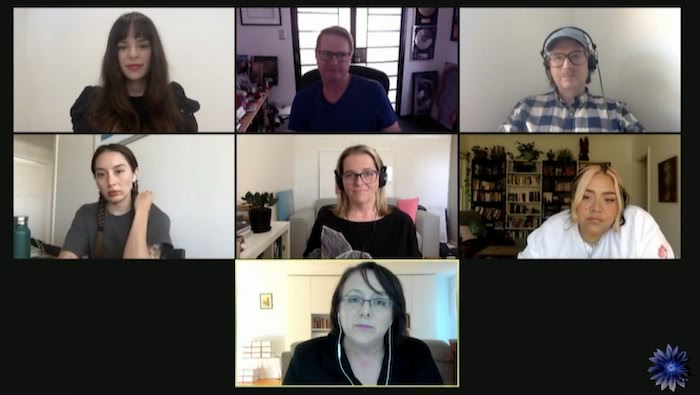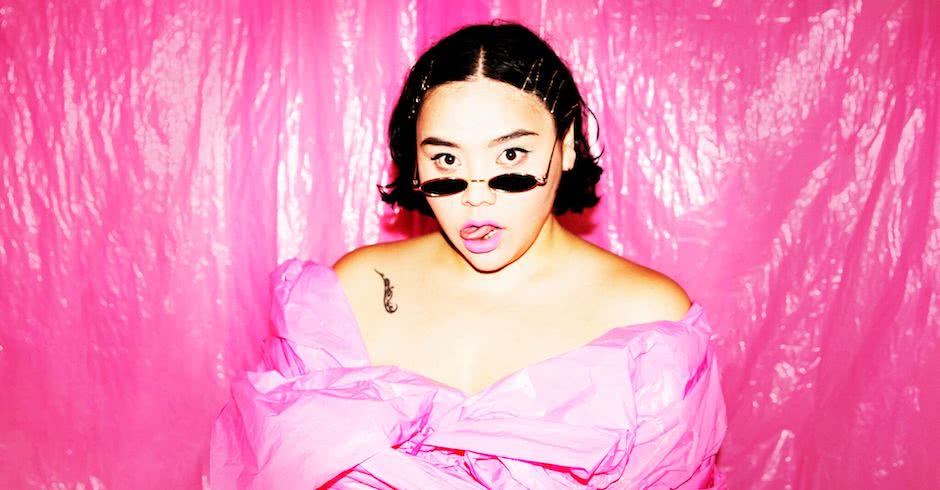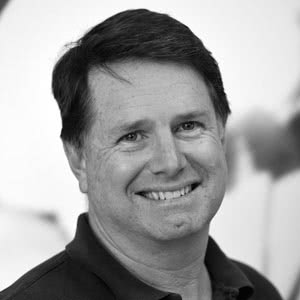Jaguar Jonze at Indie-Con: “What kind of culture are you facilitating in your company?”

CONTENT WARNING: This article contains contains references to sexual assault and/or abuse which may be distressing to readers. If you or someone you know are affected by the following story, you are not alone. To speak to someone, you can call Lifeline on 13 11 14, or 1800 RESPECT on 1800 737 732.
“I’d ask the question: what kind of a business are you running from an organisational perspective?
“If you’re running a festival, do you have security guards that have a process? And are they briefed on that process? So if a patron comes to the security guard they know exactly what to do to protect the patrons at your event.”
Jaguar Jonze was speaking at AIR’s annual Indie-Con conference last week on a panel called Code of Conduct For The Music Industry.
She was joined by fellow musician Kira Puru, Chapter Music founder Guy Blackman, Eleven: A Music Company’s John Watson and Bonnie Dalton, the General Manager of the Victorian Music Development Office (VMDO).
Gathered together virtually last Friday (October 2nd) the panel was moderated by this journalist and was a conversation about our future, about how we can make the music industry a better and safer place.
Jaguar Jonze, AKA Deena Lynch, was largely the impetus for the panel being included at Indie-Con. The work she’s done alongside photographer Michelle Pitiris has been integral to progressing the Me Too movement in Australia.
She noted that organisations and events should ask themselves what kinds of safety processes they have in place. She listed safety text lines, mediation spaces and policies, safety officers, a feedback system, a reporting system using open communication channels, staff training, culture management, and much more.
“What kind of culture are you facilitating in your company?” she questioned, before speaking on personal accountability. “[…] How are you contributing to the culture around you?”

Poppy Reid, John Watson, Guy Blackman, Jaguar Jonze, Bonnie Dalton, Kira Puru, Maria Amato (AIR)
Bonnie Dalton, who currently works with the Victorian Govt at VMDO to help grow the prosperity of Victorian music businesses, has previously worked in artist management, tour management, events (like Laneway and Falls Festival), production and programming.
Dalton brought to attention the fact that there are laws against many of the things that make this industry unsafe. She said the Australian Human Rights Commission is a great place to start to either find out more or report behaviour.
“There’s a campaign [from the AHRC] called ‘Know The Line’ that really deals with a lot of what we’re talking about,” said Dalton. “I think the point is that it’s not just a ‘music industry thing’ and it’s certainly something that is societal.
“To give it the weight that it’s in the Human Rights Commission and it’s also in all the state police department websites… This isn’t just for the music industry to come up with a line that we feel comfortable with.”
Later in the panel discussion, Kira Puru detailed her experience with “call out culture” upon the release of her single ‘Idiot’. She (and this writer also) was not aware aware that the word ‘Idiot’ is offensive ableist language. Puru said she’s always open to conversations that lead to personal development.

Kira Puru
“It’s just the way that I am naturally, to welcome those conversations. I’m not particularly interested in living in an echo chamber where I’m surrounded by people that have the same beliefs as me,” said Puru. “Whenever I’m challenged by something I’ve done or said, I like to at least create a platform for them to bring that conversation to the table.”
Meanwhile, Guy Blackman had an illuminating anecdote of his own. The co-head of the label Tone Deaf once called “almost unequivocally the most treasured record label in Australia” previously had an issue where an artist on the roster was accused of abuse.
Blackman and Ben O’Connor, his partner in life and business at Chapter Music, run a queer, female and people of colour-friendly label and management firm, and his handling of the situation stood out as a golden standard.
“We tried to instigate an accountability process, and it came to a situation where the artist wasn’t willing to engage with this process,” Blackman said.
“[…] I think it’s very important to be guided by the victim,” he added. “[…] when we met a point where it looked like accountability wasn’t going to be a possibility, we stopped working with the artist straight away. And we stated that we would donate any proceeds from recordings they were involved with to charity.”
John Watson is renowned for the sage advice and intel he offers on panels – thanks to his experience developing and exporting acts like Midnight Oil, Silverchair, Gotye, and Missy Higgins – and his contribution at Indie-Con was no different.

John Watson
When speaking of how artists as individuals can shift this music industry’s power balance he said:
“A&R people are looking for reactivity, they’re looking for audience. So instead of the artist thinking, ‘oh my god I really need to impress the A&R guy’… Screw the A&R guy or girl.
“All they’re really looking for is audience,” he added. “Put your energies on your audience, make good authentic music and other forms of communication, and grow your audience so that the A&R person has to come to you. And when they do, you’ve got hand. In a power sense, you’ve removed that power imbalance.”
This article originally appeared on The Industry Observer, which is now part of The Music Network.






























